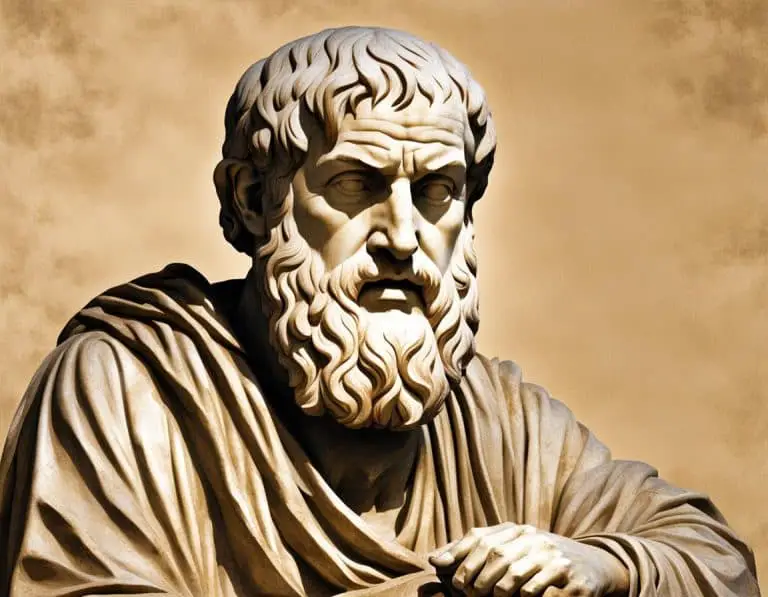Time in Syracuse
Plato spent a significant amount of time in Syracuse, where he encountered various experiences that shaped his philosophical beliefs. His interactions with Dionysius I and later with Dionysius II provided him with insights into the complexities of political power and leadership. These firsthand observations helped him develop a deeper understanding of governance and its impact on society.
During his time in Syracuse, Plato was exposed to the influence of Heraclitus, a pre-Socratic philosopher known for his ideas on flux and change. This exposure played a crucial role in shaping Plato’s own philosophical ideas, particularly in his consideration of the nature of reality and the ever-changing world around us. The concept of flux and change became a fundamental aspect of Plato’s philosophy, as he delved deeper into understanding the eternal truths that underlie the transient world.
Experiences with Dionysius I and II
Plato’s encounters with Dionysius I and II, rulers of Syracuse, left a lasting impact on his philosophical development. The relationship between Plato and Dionysius I was one fraught with tension and disappointment. Despite initially being drawn to Syracuse by the allure of putting his philosophical theories into practice, Plato soon realized that Dionysius I did not share his reverence for knowledge and virtue. This disillusionment led Plato to return to Athens, where he founded the Academy and dedicated himself to the pursuit of truth and wisdom.
Years later, Plato’s interactions with Dionysius II, the son of his former acquaintance, presented a different dynamic. While there were moments of philosophical debate and exchange, the influence of Dionysius II on Plato’s thinking was limited. Plato’s experiences with both rulers underscored the challenges of imparting and upholding philosophical ideals in the face of political power and self-interest. These encounters served as a backdrop for Plato’s continuing exploration of governance, justice, and the ideal society in his later works.
Influence of Heraclitus
Plato’s education was profoundly shaped by the teachings of the renowned philosopher Heraclitus. Heraclitus was known for his doctrine of constant change and the concept of flux. For Plato, these ideas were pivotal in shaping his own philosophical views on the nature of reality and existence.
The influence of Heraclitus led Plato to consider the dynamic and ever-changing nature of the world. This foundation of flux and change became fundamental in Plato’s exploration of the Forms and his belief in the existence of an ideal reality beyond the physical realm. Thus, Heraclitus played a significant role in laying the groundwork for Plato’s philosophical inquiries and his enduring contributions to Western philosophy.
Consideration of Flux and Change in Plato’s Ideas
Plato’s philosophical ideas were deeply influenced by his consideration of flux and change. He grappled with the concept of impermanence, exploring how the world is in a constant state of flux. This led him to ponder the nature of reality and how things come into being and cease to exist. Plato’s dialogues often reflect this theme, as characters engage in discussions about the ever-changing nature of existence.
The notion of flux and change also played a significant role in Plato’s theory of forms. By positing the existence of abstract, unchanging forms that exist beyond the physical world, Plato sought to establish a sense of permanence amidst the flux of everyday life. This duality between the changing world of appearances and the stable realm of forms shaped his metaphysical outlook and influenced his ideas on ethics and politics. Ultimately, Plato’s consideration of flux and change laid the groundwork for his complex philosophical system, highlighting the interconnectedness of all aspects of existence.
Exposure to Persian Culture
Plato’s exposure to Persian culture played a significant role in shaping his philosophical ideas. The encounter with the Persian culture broadened Plato’s perspectives on governance, ethics, and spirituality. The Persian influence can be observed in Plato’s philosophical works through the emphasis on virtues such as wisdom, courage, and justice, values that were deeply rooted in Persian society.
Furthermore, Plato’s exposure to Persian culture prompted him to explore the concept of unity in diversity. The Persian culture’s rich tapestry of traditions, languages, and beliefs encouraged Plato to consider the interconnectedness of all things. This holistic approach to understanding the world is reflected in Plato’s philosophical works, where he delves into the idea of harmony and balance as essential components of a just society.
Persian Values in Plato’s Philosophical Works
Plato’s exposure to Persian culture left an indelible mark on his philosophical works. The Persian values of wisdom, moderation, and justice permeate through Plato’s writings, shaping his ideas on ethics, politics, and metaphysics. In his dialogues, Plato often explores the concept of wisdom as a virtue essential for the ideal ruler, drawing parallels to the Persian reverence for wise leadership exemplified by figures such as Cyrus the Great.
Moreover, the Persian emphasis on moderation influenced Plato’s ethical framework, emphasizing the importance of balance and harmony in one’s life. This concept is reflected in Plato’s teachings on the importance of self-control and temperance as crucial elements of virtuous living. Additionally, the Persian value of justice, as seen in their emphasis on fairness and righteousness, resonates throughout Plato’s works, particularly in his discussions on the nature of justice and its role in creating a just society.
Related Links
What Military Service Taught Plato
How to Discover Plato’s Mentorship

